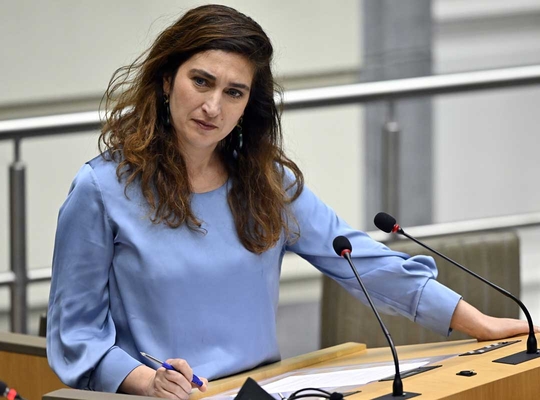You are here
Flanders wants adjustments to the European Nature Restoration Law

The Flemish Government is in favour of a Nature Restoration Law, but thinks that the current European proposal does not take enough account of the uniqueness of the Flemish region. That is why the Government is requesting several adjustments. That is the formal position approved by the Flemish Government on the proposal of the Flemish Minister responsible for Nature, Zuhal Demir. This puts Flanders in a similar position to several other Member States, including the Netherlands. “Flanders is determined to restore and protect our nature. We also prove this in deeds. A Nature Restoration Law that can contribute to further steps forward tailored to Flanders is therefore welcome, but then some adjustments to the current texts are still needed. After all, the intent cannot be to make other activities impossible,” Zuhal Demir says. Consultations within Belgium and with other Member States will follow in the coming weeks.
The European Commission has developed a proposal for a Nature Restoration Law, with legally binding EU targets per Member State for nature restoration to restore degraded ecosystems.
Map out the consequences
The Flemish government had to adopt a formal position to determine the Belgian position in the EU Council. Demir worked on the draft texts of the European Nature Restoration Law in the same way as for the European extension of the ETS system. She had the consequences substantiated and mapped out in detail, conducted a sector survey and then took a joint position with colleagues in the Flemish Government. That position was confirmed last Friday by the Flemish Government.
In favour of the Nature Restoration Law
“Flanders is in favour of a Nature Restoration Law,” says Demir, leaving no doubt. “But adjustments to the present text are needed to rewrite the text tailored to Flanders. Indeed, the current proposals not only further develop existing commitments, but also threaten to have disproportionately adverse effects on the competitive position of companies based in Flanders and other small, densely populated Member States. Finally, there are also legal questions, partly because new unclear definitions are used for commitments from existing directives, which also raises legal risks.”
Talks with other Member States
In the coming weeks, Flanders will continue to consult with other governments with a view to reaching a consensus at federal and European levels on a future Nature Restoration Law. In the meantime, Flanders is conducting bilateral talks with Wallonia, the Netherlands and countries such as Denmark and Finland. After all, various Member States in the rest of Europe are also calling for adjustments.
The Flemish tanker is turning
“Nature has also been neglected in Flanders for too long. One of my core duties as a minister is to restore and protect it. I am a Flemish nationalist, I love my environment and I am therefore determined when it comes to our Flemish nature. We are taking major steps forward with the Blue Deal, the Climate Adaptation Plan and the major investments in wetlands and forests. At the end of 2022, Flanders had 100,509 hectares of nature under effective nature management, while at the end of 2019, that was only 93,691 hectares. An increase of almost 7,000 ha. A sign that we are turning the tanker around. A Nature Restoration Law that can contribute to further steps forward tailored to Flanders is welcome, but then some adjustments to the current texts are still needed. After all, the intent cannot be to make other activities impossible,” Zuhal Demir says.

